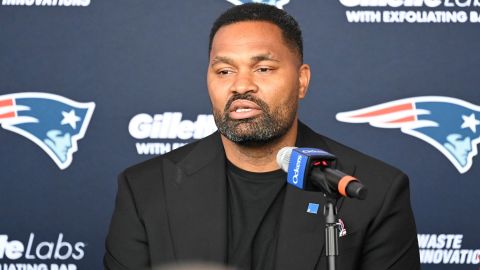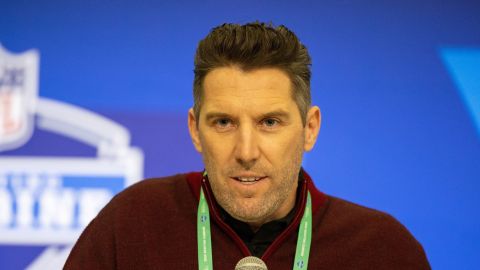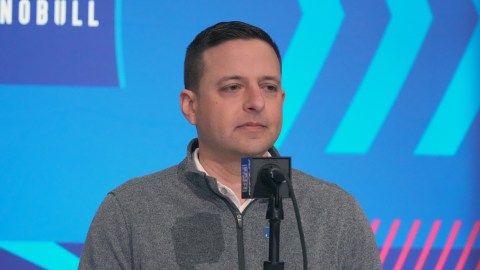The football signified Peyton Manning's legacy. Such a simple, spherical object, branded by Wilson and produced en masse. Manning has had a football in his hands since his childhood in New Orleans, and he again controlled the ball in the waning minutes of Super Bowl XLIV.
The Colts trailed 24-17, and Manning dropped back in the pocket — the same as thousands of times before — trying to orchestrate the 44th fourth-quarter comeback of his career. This time, the stage had been set for Manning's coronation. It was his version of "The Drive" that would define his career and possibly end the debate as to which quarterback can be considered the greatest of all time.
Manning set up in the shotgun, called for the snap and took a few steps backward. The world watched, picturing the likes of Joe Montana, John Elway and Tom Brady, who were all masterful in clutch situations. Perhaps they watched, too, wondering if the "aw, shucks" quarterback from Indianapolis would leapfrog them in the history books.
Manning also watched. He looked left at his favorite receiver, Reggie Wayne, who ran one of the Colts' most commonly executed passing routes — a six-yard hitch. Wayne would exaggerate his downfield acceleration, cause cornerback Tracy Porter to think he's going deep, and then come to a crashing halt before turning back toward Manning to wait for the pass that would move the chains.
It should have been simple. Manning was 4-of-6 for 44 yards so far on the drive, and he led the Colts to a third-and-5 on the New Orleans 31-yard line with less than four minutes remaining in the game. Yet Manning was a full second late on his delivery to his open receiver, and Porter had more than enough time to reshift his weight and break on the ball.
That debate that Manning could have ended in his legacy-defining drive? Well, he ended it, all right.
Manning's last significant throw in Super Bowl XLIV resulted in a touchdown, exactly the way he hadn't imagined. The greatest quarterback of all time doesn't throw a pick-six at that moment in the prime of his career, let alone on a play said quarterback has executed over and over again.
Manning was gun-shy, hastily gripping the football that should have felt so comfortable in that moment and throwing it way too late. Manning's success in the Colts offense is built on trust, but in the split second before the most important throw of Manning's career, he couldn't trust himself to unload the ball before Wayne got out of his break.
Manning could have been Montana, Elway and Brady. Instead, he was Brett Favre. It's not a bad consolation prize, but with the title of "greatest ever" hanging over one's head, "consolation" is a dirty word.
Now, Brady and the Patriots are safely in the books as the NFL's best of the decade. Sure, Colts president Bill Polian insisted his lofty — and ridiculous — goal in 2009 was to capture the records for most consecutive regular-season wins in NFL history, along with the most regular-season wins in the decade. And that's perfectly fitting, because that is exactly how Manning and the Colts will be remembered in the 2000s — great, great regular-season performers.
The Patriots, meanwhile, made their mark during the 2000s in the playoffs, winning three Super Bowls in clutch fashion. Brady orchestrated postseason, game-winning drives through every step of the way, and that's what separates him from Manning. Brady will never in a million years be able to compete with Manning's career-long statistics, but with that, Manning will never know what it's like for Brady to breathe so coolly on a Super Bowl stage.



